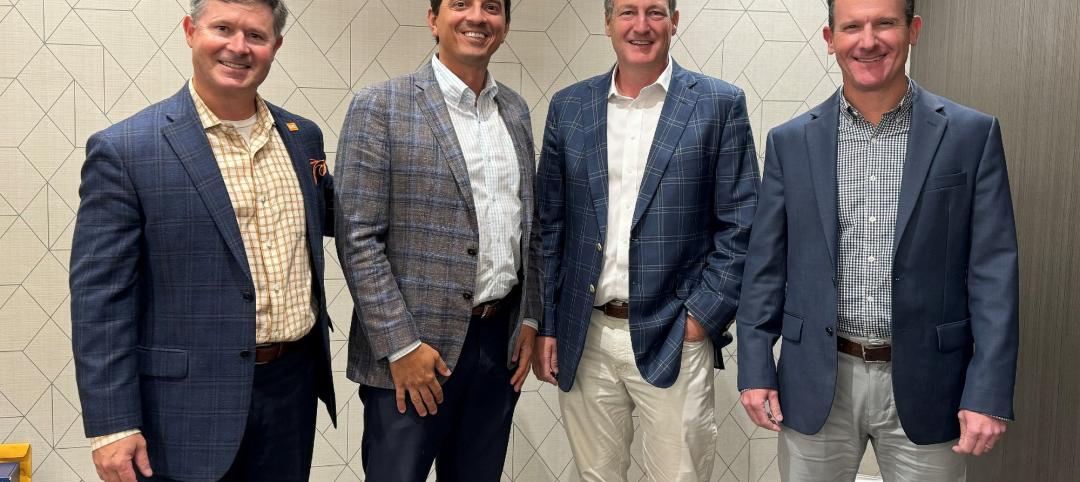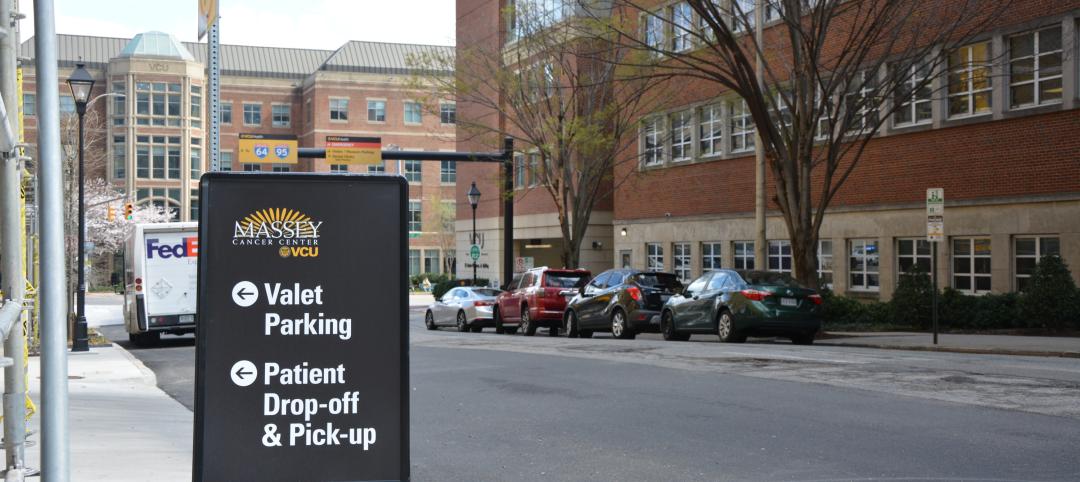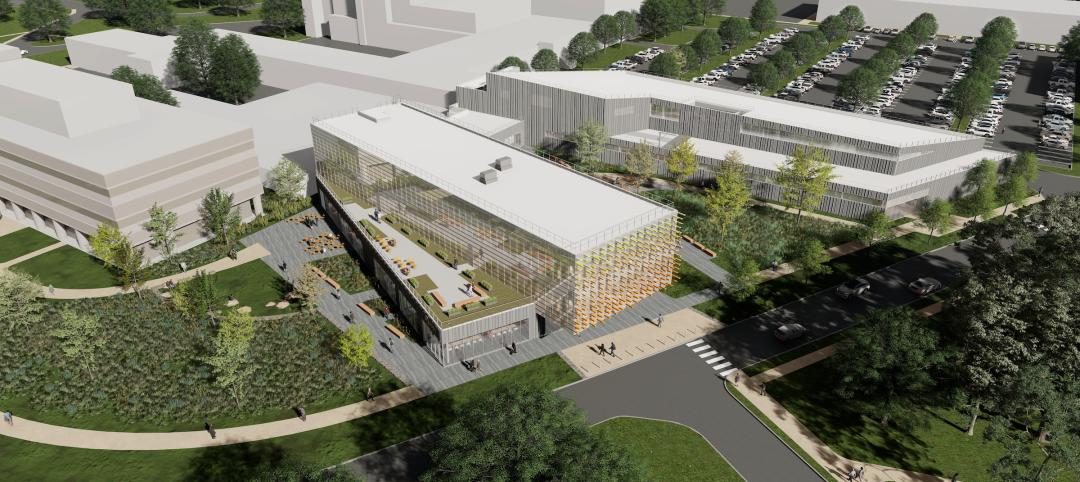2020 has been a peach, hasn’t it? A global pandemic. Raging wild fires. Riots and looting. Facemask battles. Ongoing trade wars. Election-year shenanigans. Recession fears. Increasingly divisive politics. Everything canceled. (Lest we forget zombie deer and murder hornets.)
In a year of jobsite shutdowns, project delays, funding pitfalls, and project postponements—and with no guarantee of a more prosperous 2021—it is understandable for AEC firm leaders to take a guarded, hunker-down stance when planning for next year and beyond. It is natural for firms to focus first on “right sizing” the business by slashing investments, overhead, and operational costs.
But these positions of passivity and cost-cutting run counter to the key lessons from AEC leaders who successfully navigated their firms through past market downturns and economic events, says Scott Winstead, President of FMI Management Consulting, who’s firm last year studied takeaways and strategic lessons from the Great Recession (BDCnetwork.com/DownturnLessons).
A common mistake AEC firms make during down cycles, says Winstead, is running the firm as a collection of projects, versus a business. “It’s a subtle but very distinctive difference that speaks to the long view versus the short view, and to the notion that you can’t save your way to prosperity,” says Winstead.
The firms that came out of the Great Recession in growth mode, according to the FMI research report, focused on investing in their clients, people, and business; they diversified their services and found unique ways to outperform the competition; they streamlined their operations and put their “A” players in a position to succeed and grow the business; and they created a company culture that is nimble, collaborative, and transparent.
Winstead says 2020-21 should be no different. “If I think back to 2008 and the beginning innings of the Great Recession, I heard then what we heard early on in this scenario, which is mistaking backlog as a proxy for health,” he says. “Backlog is a reflection of work that has already been sold and booked, and is in the process of being burned off. Past performance is no guarantee of future results.”
The key finding of the FMI research, which gathered insights from more than 150 engineering and construction executives, was that AEC leaders who increased their financial investment in strategy reported higher effectiveness in operations, strategy, and overall company performance, compared to respondents who either didn’t do anything or decreased spending in that area. “Strategic thinking and planning are among the top leadership skills needed to be an effective leader during a recession,” wrote the authors of the report.
Download the FMI report, “Leading Through Business Cycles: Lessons Learned From E&C Executives,” at: BDCnetwork.com/DownturnLessons.
Related Stories
Architects | May 30, 2024
AE firm Goodwyn Mills Cawood merges with Southland Engineering
Architecture and engineering firm Goodwyn Mills Cawood (GMC) is further expanding its services through a strategic merger with engineering firm Southland Engineering in Cartersville, Ga.
K-12 Schools | May 30, 2024
Inclusive design strategies to transform learning spaces
Students with disabilities and those experiencing mental health and behavioral conditions represent a group of the most vulnerable students at risk for failing to connect educationally and socially. Educators and school districts are struggling to accommodate all of these nuanced and, at times, overlapping conditions.
MFPRO+ New Projects | May 29, 2024
Two San Francisco multifamily high rises install onsite water recycling systems
Two high-rise apartment buildings in San Francisco have installed onsite water recycling systems that will reuse a total of 3.9 million gallons of wastewater annually. The recycled water will be used for toilet flushing, cooling towers, and landscape irrigation to significantly reduce water usage in both buildings.
Healthcare Facilities | May 28, 2024
Healthcare design: How to improve the parking experience for patients and families
Parking is likely a patient’s—and their families—first and last touch with a healthcare facility. As such, the arrival and departure parking experience can have a profound impact on their experience with the healthcare facility, writes Beth Bryan, PE, PTOE, PTP, STP2, Principal, Project Manager, Walter P Moore.
Urban Planning | May 28, 2024
‘Flowing’ design emphasizes interaction at Bellevue, Wash., development
The three-tower 1,030,000-sf office and retail development designed by Graphite Design Group in collaboration with Compton Design Office for Vulcan Real Estate is attracting some of the world’s largest names in tech and hospitality.
MFPRO+ News | May 28, 2024
ENERGY STAR NextGen Certification for New Homes and Apartments launched
The U.S. Environmental Protection Agency recently launched ENERGY STAR NextGen Certified Homes and Apartments, a voluntary certification program for new residential buildings. The program will increase national energy and emissions savings by accelerating the building industry’s adoption of advanced, energy-efficient technologies, according to an EPA news release.
Women in Design+Construction | May 28, 2024
Commerce Department launches Million Women in Construction Community Pledge
The U.S. Department of Commerce launched its Million Women in Construction Community Pledge this month to boost the ranks of women in construction companies. Federal investments are creating a construction boom that is increasing job opportunities for construction and trade workers.
Laboratories | May 24, 2024
The Department of Energy breaks ground on the Princeton Plasma Innovation Center
In Princeton, N.J., the U.S. Department of Energy’s Princeton Plasma Physics Laboratory (PPPL) has broken ground on the Princeton Plasma Innovation Center (PPIC), a state-of-the-art office and laboratory building. Designed and constructed by SmithGroup, the $109.7 million facility will provide space for research supporting PPPL’s expanded mission into microelectronics, quantum sensors and devices, and sustainability sciences.
MFPRO+ News | May 24, 2024
Austin, Texas, outlaws windowless bedrooms
Austin, Texas will no longer allow developers to build windowless bedrooms. For at least two decades, the city had permitted developers to build thousands of windowless bedrooms.
Resiliency | May 24, 2024
As temperatures underground rise, so do risks to commercial buildings
Heat created by underground structures is increasing the risk of damage to buildings, recent studies have found. Basements, train tunnels, sewers, and other underground systems are making the ground around them warmer, which causes soil, sand, clay and silt to shift, settle, contract, and expand.

















